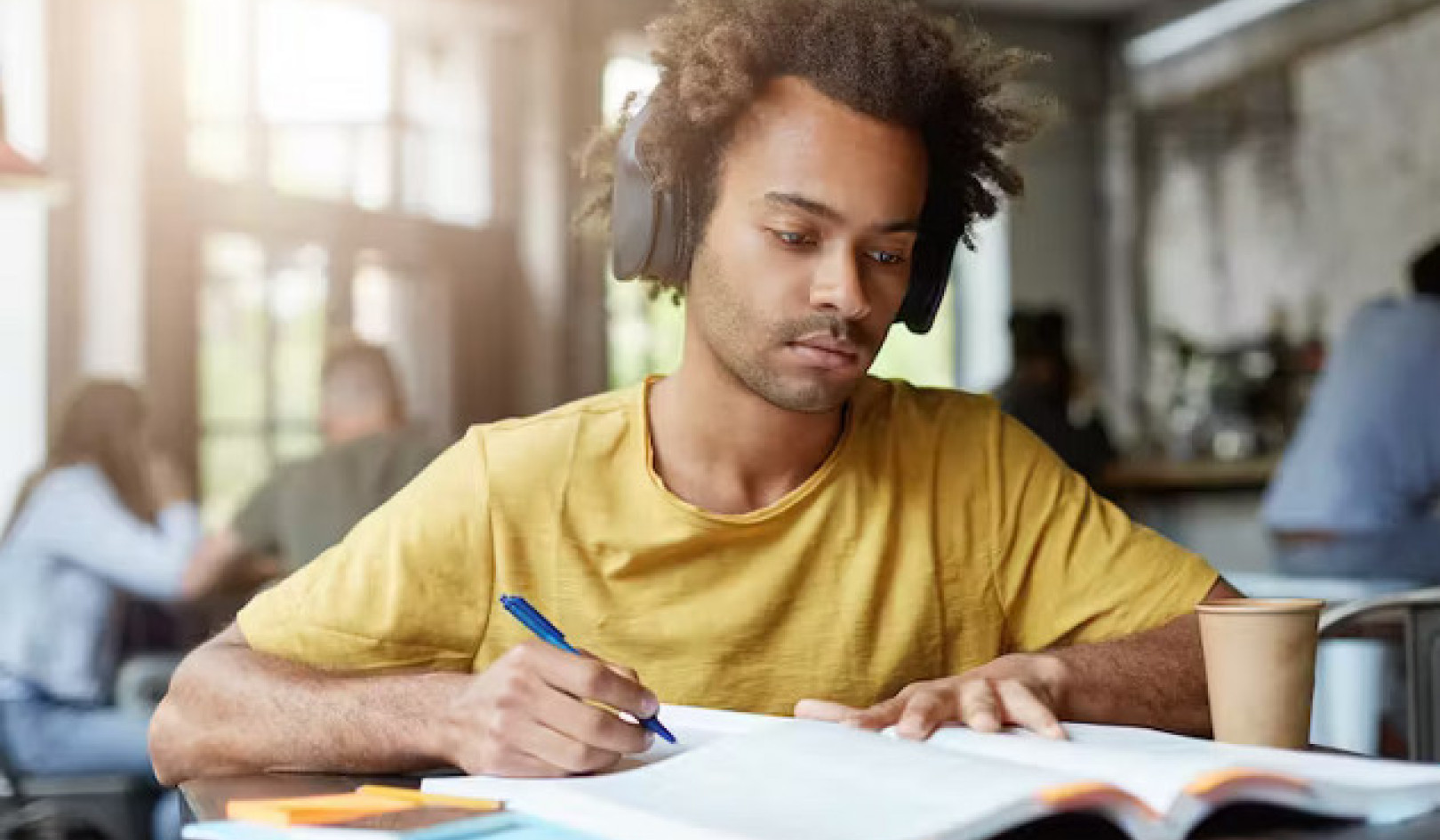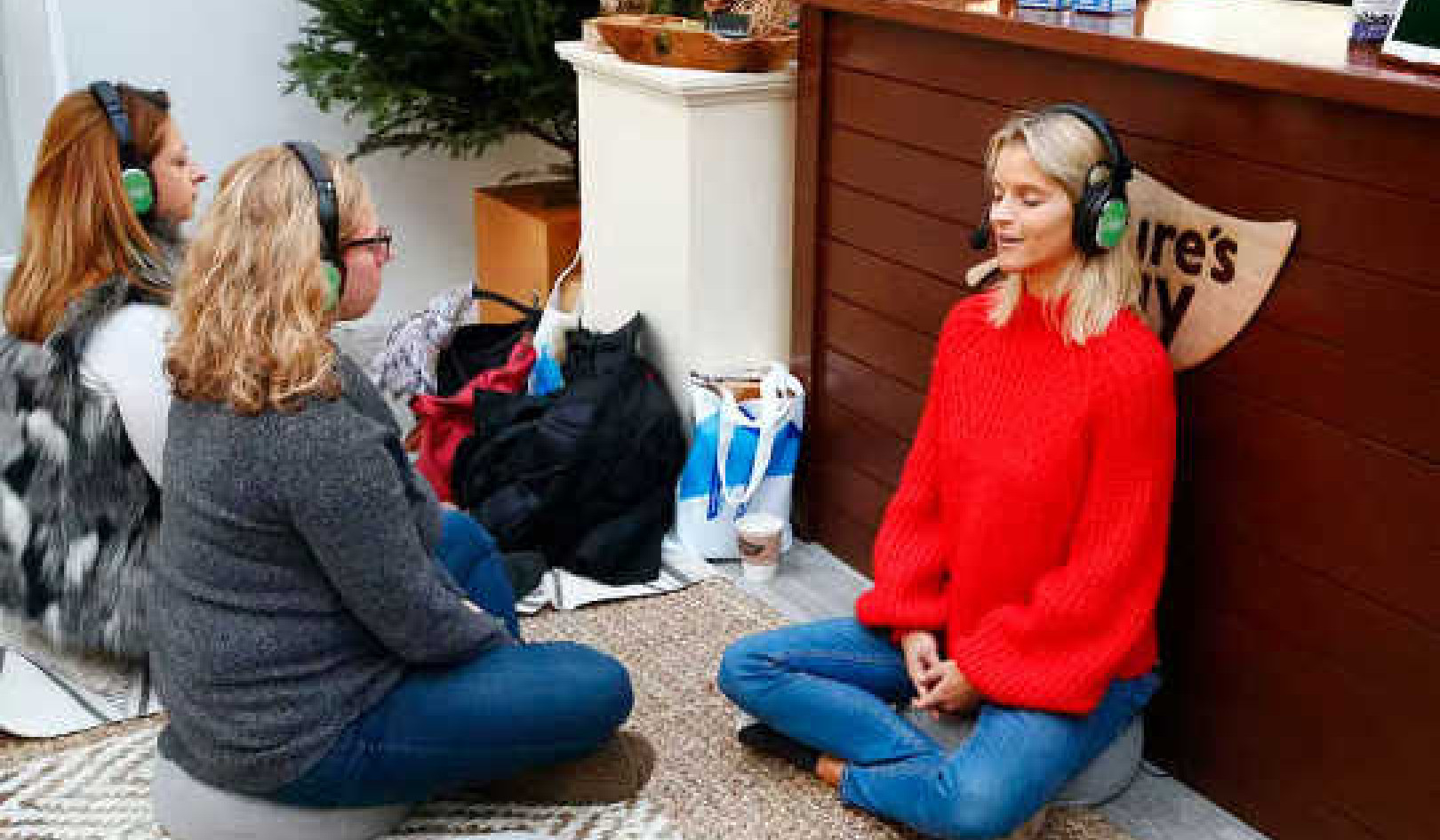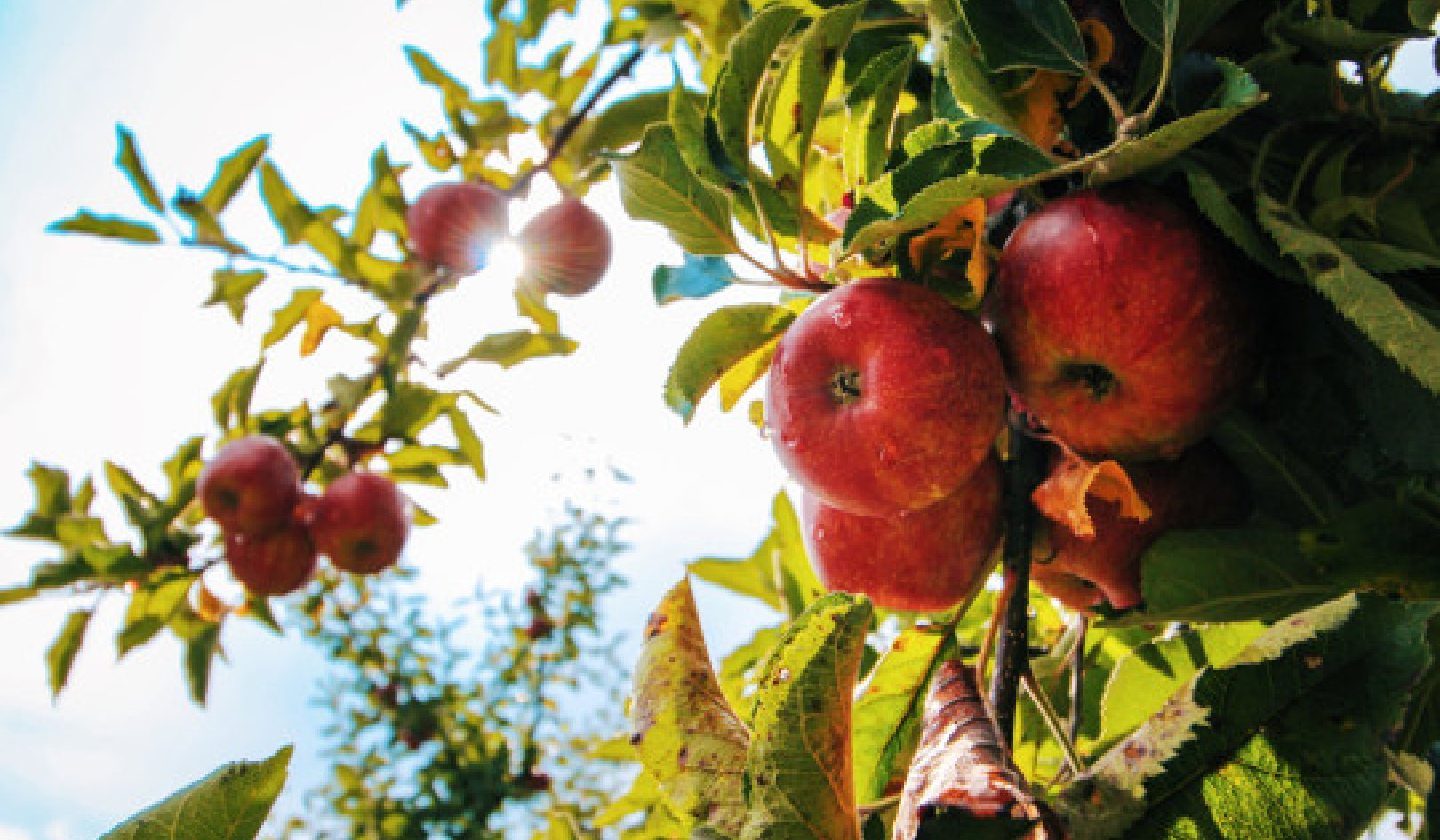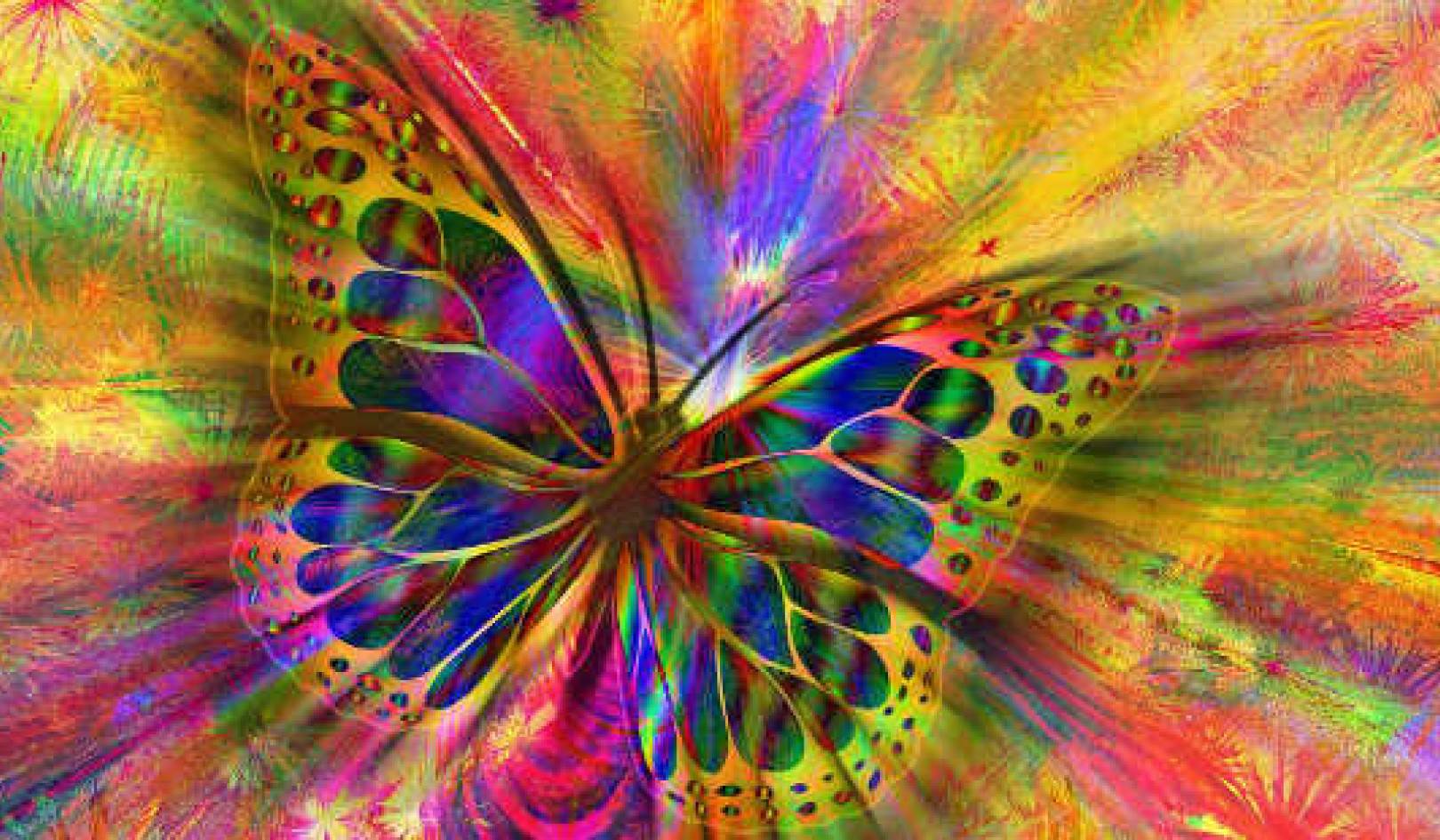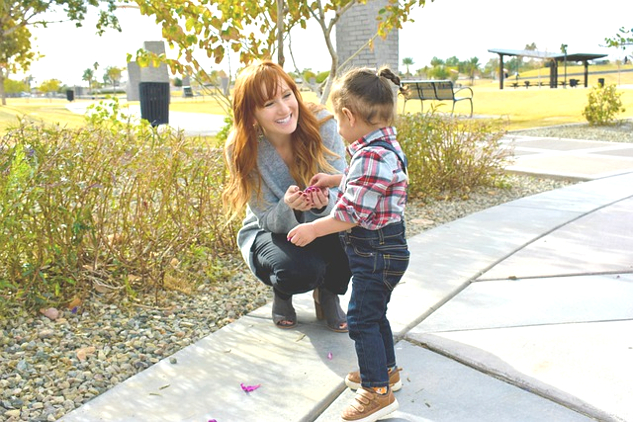
Image by Luna Lee
What remains constant is that my child’s pain is always calling me into a new relationship with my highest intentions. The difficulties I encounter continually smooth the rough edges of my heart and mind, giving me more wisdom, balance, and capacity as long as I have the courage to be near the pain.
A Warrior Without Armor
If I lift my eyes from my computer screen and look across my desk, I see a Japanese print given to me by my father. The print is of a warrior without armor. In his raised right hand, he holds a long wooden staff, which protects him from the flurry of arrows and swords flying at him from all directions. The warrior holds a long sword in his other hand, and he’s running fast into this conflict.
Some days I look at this man in the hailstorm of projectiles and say, “Yeah, this is exactly what it feels like.” It can seem like there are problems in every direction. My daughter, who now lives a six-hour plane ride away, is unhappy and starting to feel depressed and suicidal. The dog needs ACL surgery, kids at my work don’t want to listen, there’s no oat milk for coffee, my son lost his wallet, and the cat keeps throwing up.
I see these arrows coming at me, and I see this Samurai warrior with his fierceness and strength, running barefoot into the fray, so unafraid. I think, You have real arrows. I have possibilities and cat vomit.
I’ve learned to ask myself, What's the best thing I can you for you right now? I know that all lotuses come from mud.
Patience, the Unpopular Virtue
When my kids are in pain, the last thing I want to be is patient. I want things to change now. I want the suffering to end. I’ve learned when I push too much too fast, I add more pain by designating this condition as intolerable and unacceptable.
Labeling something as unacceptable is one definition of suffering. With such a label, I now have not only the painful situation, but also a second arrow of anguish in the form of my own intolerance.
The Buddha spoke of patience as the highest virtue we can cultivate. Patience is a necessary ingredient in the creation of equanimity and the power to stay the course.
In our Western culture, patience is not a popular trait. It doesn’t look like a virtue or strength. If we are patient, we are often seen as weak or passive. Our culture rewards those who make things happen and create change. We do not look favorably on patience. In most areas of life, patience is not only suspect, but actively discouraged.
A few years ago, a friend on retreat shared an insight about patience with a friend who was struggling with addiction. I loved it so much that he wrote it out for me, and I put it next to my bed:
“Even on the same tree,
all the flowers do not bloom at once.”
My parenting journey does not look like anyone else’s, and I cannot expect theirs to resemble mine. I am progressing in accord with my own karma—not someone else’s expectations—just as my children are.
We know what it feels like to try all the time and still feel like nothing turns out right. Patience knows even if things look stagnant, there is movement and change. Patience honors the pace of life and allows the natural order to unfold in its own time, even if it’s not at the pace we want. This is the type of patience Dharma teacher Joanne Friday calls “gentle diligence over time.”
It is patience that allows us to move forward with joy instead of pain. It is not a flaccid, helpless acceptance, but one that can shift our awareness from conflict and oppression to dynamic capability.
A Classic Parenting Triangle
Recently, I found myself in a classic triangle: parental anger, a hurt and unhappy child, and myself as the peacemaker. With understanding, I could speak to the angry parent’s deepest desire to keep their child safe and also recognize the child’s wish for consideration and trust. In recognizing the positive intent of both parties, the strategies that brought forth conflict and hurt became obvious.
I did not have to fix the situation, but to give both parent and child empathy and understanding. I trusted their own wisdom to reconcile.
It felt liberating to trust others and allow them their own process without forcing a resolution or rushing in to fix an uncomfortable situation. Patience allowed me to love both parties without making one wrong or judging them.
Staying present for ourselves in the midst of confusion, discomfort, and the messiness of an unsolved conflict gives others the gift of trust in their abilities, authentic path, and process. This is patience.
What I Do, and How I Am, Matters
One of the most useful lessons I’ve learned is that what I do, and how I am, matters. Even when things are happening that I do not like or want, I have a choice in how I respond. My life and happiness are worth investing in. My actions, thoughts, and words with my child are meaningful, even if I can’t see their effect right now.
The quality of my consciousness is hugely important for my own balance and affects my connection with my children. I lean heavily on my intentions and keep them centered in my life.
I also use present-moment awareness to help me stay with what is and not fall down the rabbit hole of the future. Creating a small window of attention gives a framework for attending to the present moment.
We can make the circle of noticing an hour, ten minutes, or ten breaths, whatever gives us the support and focus we are looking for. If we are very distracted, we may need to make a very small window, perhaps committing to staying present with this task for the next three breaths. Sometimes, that is all I can do.
As parents and as people, we are unique. No single strategy or technique can fit all of us. We can heal the edges of pain and work toward the marrow of our being with the firm intention to sustain love for ourselves and our children, whether they get a splinter or something unthinkable happens.
We have the ability to stretch our own compassion and wisdom to hold it all, even what we don’t want. My hope is that these words can accompany those on a path of staying present with themselves and learning how to be as wide as the sky, big enough to hold everything.
I send my heart to your heart and wish for you to be a presence of care for yourself in each moment. May your heart be at peace in the midst of your life and may you rest in understanding and balance always. May this be so for you.
To live in the world with your heart undisturbed by the world, with all sorrows ended, dwelling in peace—this is the greatest happiness. For he or she who accomplishes this, unvanquished wherever she goes, always they are safe and happy—happiness lives within oneself.
Copyright 2023. All Rights Reserved.
Adapted from the book "When the Whole World Tips".
Article Source:
BOOK: When the Whole World Tips
When the Whole World Tips: Parenting through Crisis with Mindfulness and Balance
by Celia Landman
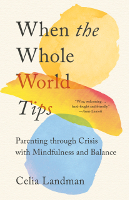 Drawing from her own experience parenting her children through clinical depression, suicidal ideation, and physical injury, Celia Landman guides parents at their limit back from helplessness toward stability through the ancient practice of equanimity, or balance.
Drawing from her own experience parenting her children through clinical depression, suicidal ideation, and physical injury, Celia Landman guides parents at their limit back from helplessness toward stability through the ancient practice of equanimity, or balance.
Contemporary neuroscience and developmental psychology research demonstrates how a parent’s state of anxiety is directly communicated to the child and can intensify their pain. When the Whole World Tips is rich with real life examples from parents in the midst of caring for children in crisis, plentiful resources, and helpful exercises. Each chapter offers accessible practices for parents to care for themselves in order to remain present for their children.
For more info and/or to order this book, click here. Also available as a Kindle edition.
About the Author
 Celia Landman, MA, is a mindfulness educator offering support to teens and adults. She draws from experiences working with those impacted by trauma, addiction, and anxiety, and creates customized meditation, visualizations, and trainings to reconnect them to their wholeness. She was ordained by Thich Nhat Hahn as a member of the Plum Village Community of Engaged Buddhism. She is also a certified trainer with the Center for Nonviolent Communication. Her new book, When the Whole World Tips: Parenting through Crisis with Mindfulness and Balance (Parallax Press, Nov. 21, 2023), describes how to find balance while navigating seemingly impossible parenting situations. Learn more at celialandman.com.
Celia Landman, MA, is a mindfulness educator offering support to teens and adults. She draws from experiences working with those impacted by trauma, addiction, and anxiety, and creates customized meditation, visualizations, and trainings to reconnect them to their wholeness. She was ordained by Thich Nhat Hahn as a member of the Plum Village Community of Engaged Buddhism. She is also a certified trainer with the Center for Nonviolent Communication. Her new book, When the Whole World Tips: Parenting through Crisis with Mindfulness and Balance (Parallax Press, Nov. 21, 2023), describes how to find balance while navigating seemingly impossible parenting situations. Learn more at celialandman.com.





















